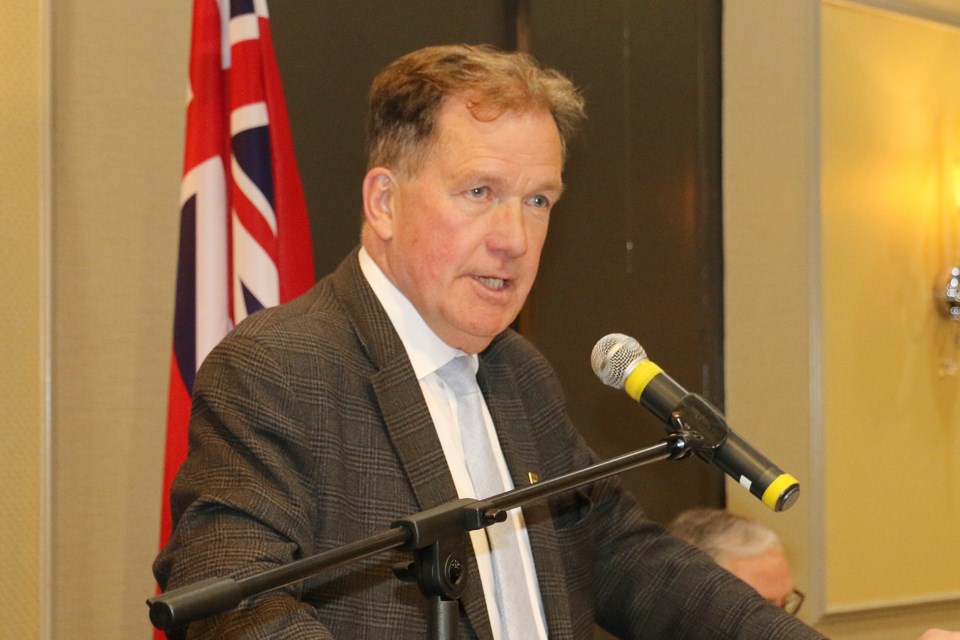Ontario Mines Minister George Pirie said this week securing a supply of critical minerals in Canada is being done for the right reasons, to improve the country's environmental status.
Speaking Monday as part of the Federation of Northern Ontario Municipalities conference at the Holiday Inn and again at Dynamic Earth, Pirie commented on his recent trip to Washington, D.C., where he met with government representatives at the Energy Transition Metals Summit. Pirie was one of the featured speakers at that event.
In recent months, Pirie has commented on the need to secure Ontario's — and all of Canada’s — supply of critical minerals and has spoken against the idea of accepting nickel from China, for example, since he said many minerals processed there are from environmentally unfriendly coal-fired refineries and smelters.
Pirie said there is a valid environmental concern for having the mining and refining of critical minerals done in Canada.
Securing critical minerals will also help Canadian auto producers in their move to produce more battery electric vehicles and reduce dependence on gasoline- and diesel-powered vehicles.
Pirie said the United States is also concerned about the supply chain of critical minerals, but for different reasons than Canada.
"The biggest threat to national security to the U.S. right now is China, China and Russia. China controls, as you know, the rare earths and large part of the critical minerals. So our message is very concise. We believe in how we mine; Ontario has the highest environmental standards in the world," said Pirie.
Pirie added that Canada also has a constitutional duty to consult with Indigenous nations and Canada has developed world-class mining processes. Despite all that, Pirie said the need for critical minerals is still urgent.
Just last week he said, a western firm had to apply for a special exemption to import titanium from Russia, something that could be available from Ontario’s Ring Of Fire mining deposit.
"And we have the ability to produce the rare earths and critical minerals that fill the hole that the U.S. doesn't have,” he said. "Our words and our actions matter. And that's why I believe so highly in the future of Northern Ontario in the mining sector, because we are different. We know how to do it correctly; investing in today's mining sectors and investing in the future well being in Northern Ontario for generations to come.”
Pirie said the move toward mining and processing of critical minerals is a move toward the new automotive fuel of the future. He said the move away from dependence on fossil fuels into electricity is essential for the environment.
“As we move through this transformation from fossil fuels to the electric economy, you can't get it done without mining,” said Pirie.
Pirie said this not only means mining the new minerals, but also mining them sustainably.
"And that means we meet the needs of this current generation without compromising the needs of the next generation. That's what we do. That's what we're proud of.”
Len Gillis covers mining and health care for Sudbury.com.
